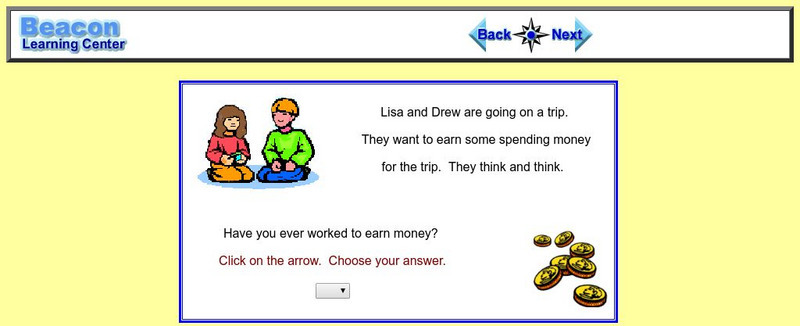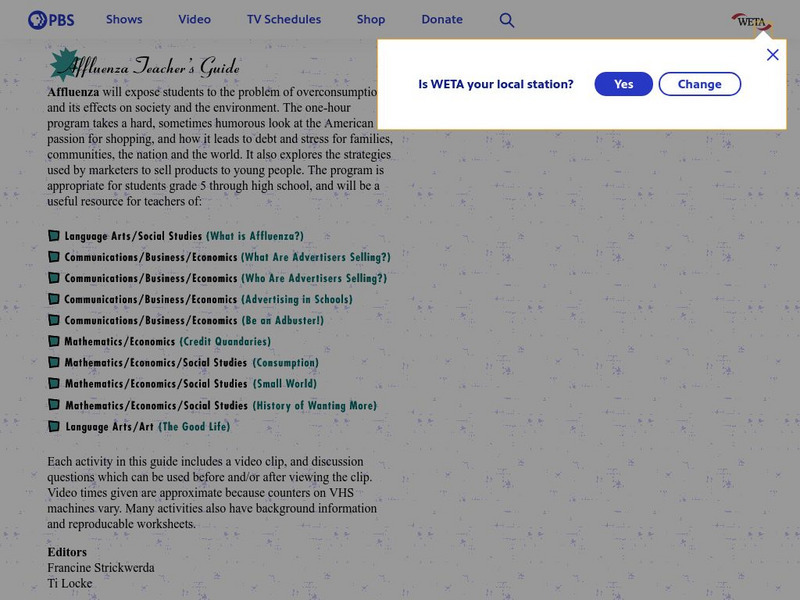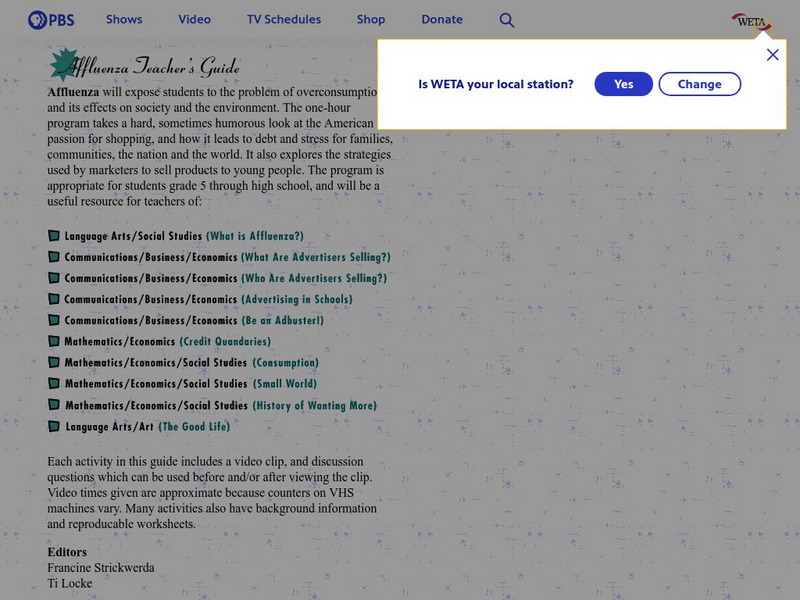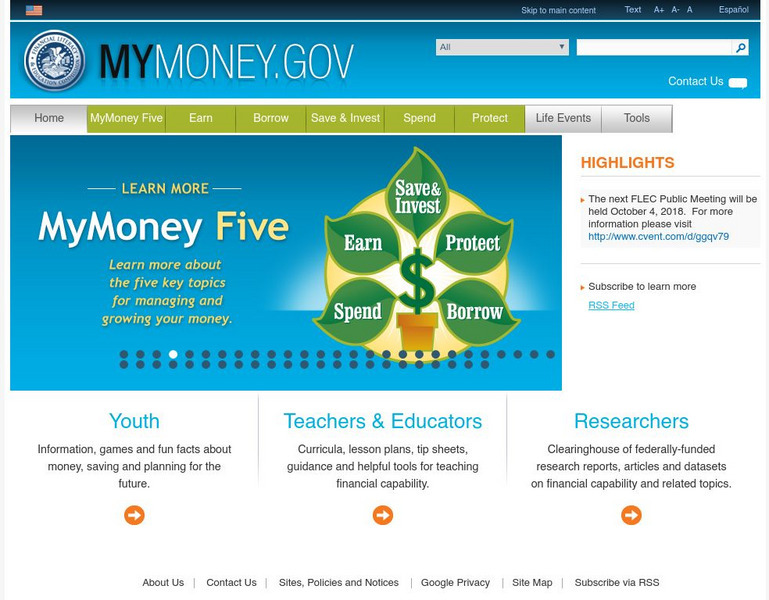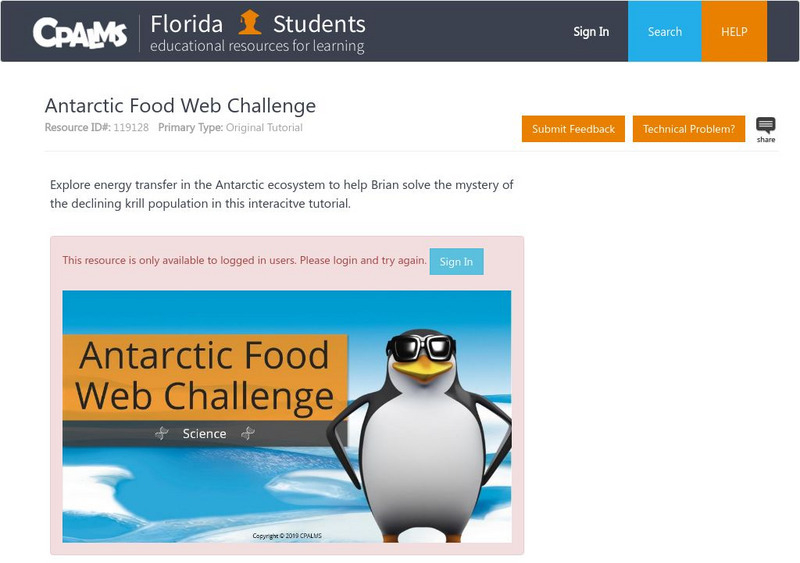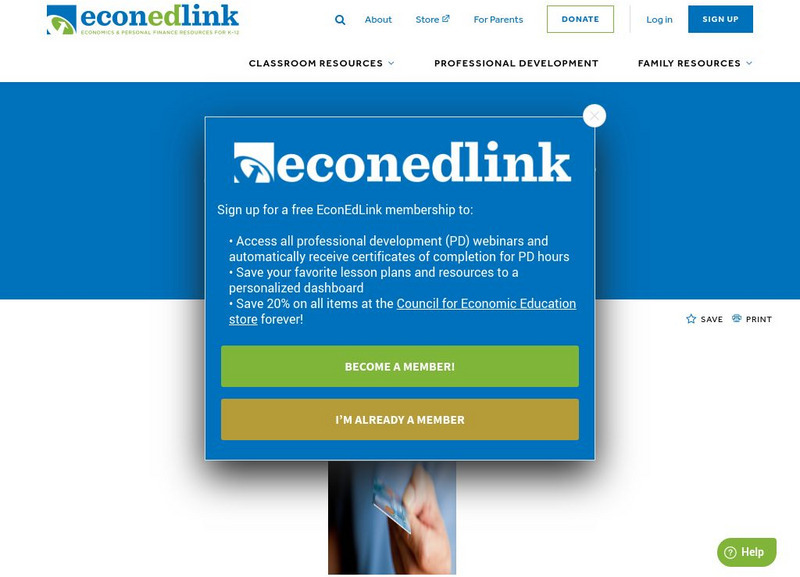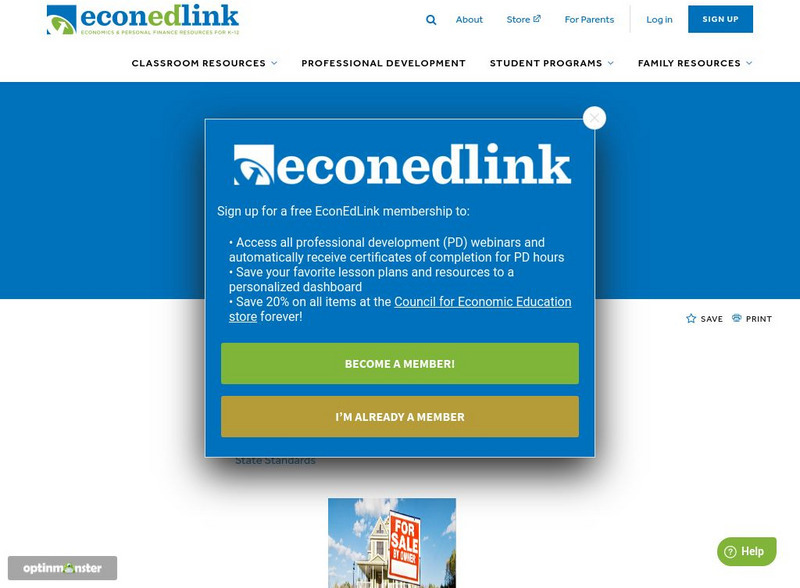Beacon Learning Center
Beacon Learning Center: Business Buddies
Help characters Lisa and Drew learn simple economic principles by choosing what goods they will need for their lemonade stand. Continue exploring economic concepts by determining the producers, services, and consumers associated with the...
PBS
Pbs Lesson Plan: What the World Consumes
These visual, easy-to-grasp lessons in world economics and consumerism features lessons and related videos in which students experience first-hand the economic dilemmas faced by other countries and are asked to examine their own values...
PBS
Pbs Lesson Plan: What the World Consumes
These visual, easy-to-grasp lessons in world economics and consumerism features lessons and related videos in which students experience first-hand the economic dilemmas faced by other countries and are asked to examine their own values...
PBS
Pbs (Affluenza): What Are Advertisers Selling
What are advertisers really selling? Are there hidden messages in ads? In this lesson plan, learners explore the concept of persuasive advertising and evaluate ads directed at young consumers. A timely lesson plan that would generate...
Other
My Money
This Federal Government website provides consumers with many resources and much information to help them to manage their money better. Topics include budgeting, taxes, saving, investing, retirement planning, credit, and checking...
Other
College of Du Page: Energy in an Ecosystem
Ecosystems contain two kinds of commodities: matter (nutrients) and energy. Nutrients cycle through the ecosystem, available for repeated use by organisms. These cycles of use and reuse are called biogeochemical cycles. Energy instead is...
Alabama Learning Exchange
Alex: Producers and Consumers
This instructional activity will teach the difference between producers and consumers. It provides an interactive way for students to get involved and actually become producers and consumers.
Council for Economic Education
Econ Ed Link: Every Penny Counts
Lesson that helps learners understand that people must make choices about the goods and services they purchase. Students recognize the prices indicate what people pay for goods and services, learn to compare prices, and understand that...
Curated OER
National Park Service: Moon Crater Ecosystems Lesson Plan
This is a teacher's guide to a lesson on ecosystems. The objective is for the students to set up their own ecosystem and define the roles of producers, consumers and scavengers.
CPALMS
Florida State University Cpalms: Florida Students: Antarctic Food Web Challenge
Discover how energy flows as part of a food web. Identify the ultimate source of energy for organisms on Earth.
CK-12 Foundation
Ck 12: Biology: Autotrophs and Heterotrophs
[Free Registration/Login may be required to access all resource tools.] Discusses how autotrophs and heterotrophs obtain energy.
Other
American Academy of Orthopaedic Manual Physical Therapy
Home page of a professional organization of physical therapists that specialize in orthopedic and manual therapy.
Read Works
Read Works: The Eco Pyramid
[Free Registration/Login Required] This passage shares nonfiction information about ecological pyramids. This passage is a stand-alone curricular piece that reinforces essential reading skills and strategies and establishes scaffolding...
Planet Pals
Planet Pals: The Food Chain
Omnivores, herbivores and carnivores are waiting for you. The food chain comes to life at this friendly site.
Council for Economic Education
Econ Ed Link: Community Helpers at Your Service
Show elementary students the correlation between goods and services and consumers. "You will draw a picture of a community helper, and perhaps write some sentences about him or her, to show or tell how that helper provides a Service."
Council for Economic Education
Econ Ed Link: Hey Pop!
One of the best sounds and smells is fresh popcorn! At the movies, at the fair, or at home, everyone likes to munch on popcorn. What is your favorite brand? Is the most expensive the best? You will conduct a taste test to find out. You...
Council for Economic Education
Econ Ed Link: If I Ran the Zoo Economics and Literature
Welcome to the Zoo! In this two-day instructional activity you will use Dr. Seuss' If I Ran The Zoo book to introduce the economic concepts to your students. You will also get the chance to use actual zoo criteria to help a zoo "choose"...
Council for Economic Education
Econ Ed Link: Hey, Mom! What's for Breakfast?
In this lesson students working in cooperative groups will: 1.Discuss food items they consume for breakfast. 2.Investigate elements of foreign culture, particularly food. 3.Use map skills to locate selected foreign nations. 4.Increase...
Council for Economic Education
Econ Ed Link: Us History: Inventors & Entrepreneurs
Students will learn the difference between inventors and entrepreneurs. From talking with adults they will learn some of the benefits inventors and entrepreneurs have provided for society in the last 40 years.
Council for Economic Education
Econ Ed Link: Forecasting Economics
Can you learn economics from the weather? Students will be able to integrate science, math, and economics through this engaging lesson. The forecast predicts some percentage chance of success.
Council for Economic Education
Econedlink: Demand
This video teaches the concept of Demand. Demand refers to a relationship between price and the quantity of a good or service that consumers demand. The website contains an interactive quiz and links for related lesson plans.
Council for Economic Education
Econ Ed Link: My Credit Rating: Why Should I Care?
Credit is a wonderful tool for the consumer. It can enhance your quality of life. It enables you to buy and enjoy a purchase before you have the money to pay for it. On the other hand, it can create serious problems for people who use it...
Council for Economic Education
Econ Ed Link: Buying vs. Renting
Have you given any thought to where you will live when you are "on your own" - out in the world earning a living? You will have many decisions to make as you look for a place to call home. In this lesson, your basic economic decision...
Council for Economic Education
Econ Ed Link: Opportunity Cost
Consumers are faced with tough choices because so many innovative and exciting products and services are available. Therefore, engraining a decision-making process that includes considering of opportunity cost is necessary to shape...


